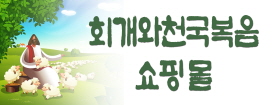유대인들은 왜 이사야서 53장을 읽지 않을까?
유대인에게 "유대인들은 왜 이사야서 53장을 읽지 않습니까?"라고 질문하면 몹시 화를 내거나 흥분한다. 그렇지 않다는 사실을 무엇부터 어떻게 설명해야 할지 고민할 정도로 할 말이 많다는 뜻이다. 이스라엘에 사는 기독교인은 바로 이점을 역이용하여 유대인들을 전도한 적이 있다. 조금 비상식적인 방법이긴 하지만 유대인에게 전도할 수 있는 길이 워낙 제한적이기 때문에 불가피한 선택이었던 셈이다. 그러니까 15년전쯤, 기독교인들이 이스라엘 북부의 보수적인 도시 Safed등지에 "유대인들은 왜 이사야서 53장을 읽지 않습니까?"라는 포스트를 부착한 일이다.
결과적으로 효과는 좋았다. 그 일 후 많은 유대인들은 평소에 거의 읽지 않던 이사야서 53장을 읽었고 '예수가 메시야로 오신거로구나'라고 생각하게 되었기 때문이다.
그리고 랍비들은 이 질문에 매우 민감해졌다.
다음은 세계기독교박물관이 유대인 랍비들에게 공개적으로 "유대인들은 왜 이사야서 53장을 읽지 않습니까?"라는 질문을 하여 얻은 답변들이다. 답변을 종합하면 다음과 같다.
"유대인들은 안식일마다 정해진 부분의 모세오경을 조금씩 읽어 나가므로 매년 모세오경을 한 번씩 읽게 된다. 그리고 선지서 등은 모세오경과 관련이 있는 부분만 조금 읽는다. 이사야 53장은 여기에 포함되지 않았을 뿐이다. 그리고 이 관례는 이미 예수시대 이전에 시작된 것이므로 지금에 와서 이 질문을 하는 것은 유대인들을 괴롭히는 작전으로 볼 수 밖에 없다" (따라서 이 글을 보시는 분들은 아래 글을 참고하시고, 유대인에게 질문하는 일은 자제해 주시면 감사하겠습니다)
This claim that the Jews have deliberately removed Isaiah 53 from the Haftorah because they are “so scared” that upon hearing this chapter read aloud from the pulpit, worshipers might bolt from their synagogues for the local baptism pool is one of the most popular arguments used by missionaries to sustain their christological interpretation of Isaiah 53(회당에서 이사야 53장을 낭독하면 유대인들이 바로 세례탕으로 달려가 기독교인이 되려 할까봐 두려워서 유대인들이 일부러 이사야 53장을 회당의 하프토라(회당에서 선지서를 읽는 순서) 때 낭독하지 않는다는 설은 선교사들이 가장 많이 하는 주장 중의 하나이다). This argument, however, is so devoid of merit that I often find it difficult to know where to begin in my response(너무나 설득력이 없는 주장이라서 어디서부터 반박을 해야할지도 모르겠다.).
Let’s start with a little background on the Jewish custom to read a portion of the Haftorah on the Sabbath day. Those who are unfamiliar with the custom of reading the Haftorah might conclude from this missionary argument that the Jews read all of the Prophets during the yearly cycle (as we do the entire Pentateuch) and we somehow only leave out Isaiah 53 from the annual reading of the Haftorah. Actually, less than five percent of the prophets are read during the Sabbath service throughout the year(1년에 한번 완독하는 모세5경과는 달리, 선지서는 매년 단 5%만이 안식일 예배 때 낭독된다.).
The custom to read the Haftorah began when Antiochus Epiphanes (ruled from 175-164 B.C.E.), in an effort to stifle the study of Torah among the nation of Israel, decreed that the Jews not read from the Torah. To deal with this serious problem, the Jewish people began to read from a selected portion of the Prophets on each Sabbath day as a substitute. This custom was retained after the decree was rescinded. (하프토라를 낭독하는 관습은 안티오쿠스 에피파네(BC175-164년에 통치)가 이스라엘에서 토라연구를 하지 못하게 하기 위해서 토라 낭독을 금지하면서 시작되었다. 이 심각한 문제를 극복하기 위해서 유대민족은 안식일에 선지서 중 일부를 발췌해서 대신 읽기 시작했다. 토라낭독 금지법이 해제된 후에도 선지서를 읽는 관습은 남았다.)
The particular Sabbath portion of the Prophets was carefully selected for one of two reasons. Either because the theme of a segment of the Prophets closely correlated to the portion of the Torah read that week, or because that section of the Prophets thematically corresponded to a festival or a historical circumstance during that Sabbath. It is therefore easy to understand why Isaiah 53 is never read in the synagogue. Isaiah 53 bears no relationship to any of the chapters of the Pentateuch and is unrelated to any holiday or historical circumstance on the Jewish calendar and therefore it was never included in any Haftorah portion. (안식일에 낭독할 선지서를 선택할 때는 두가지 이유 때문에 선택했다. 선지서의 일부가 그 주에 읽어야 할 토라의 내용과 관련이 있기 때문이거나, 그 선지서의 일부의 주제가 안식일이 끼어있는 명절이나 역사적 사건 등과 관련이 있기 때문이다. 이사야 53장은 모세5경의 어떤 장과도 관련이 없으며, 어떤 명절이나 유대력의 역사적 사건과도 관련이 없기 때문에 하프토라의 일부로 선택되지 않은 것이다.)
It probably would come as a surprise to many missionaries that not only is Isaiah 53 never read in the synagogue on the Sabbath, but neither are Isaiah chapters 3, 13, 23 or 33 for that matter. It should be obvious that Christian polemics played no role in the Haftorah selection as evidenced by the fact that Isaiah 9:5-6 is read in the Haftorah, which is a text widely used by missionaries to support their claims. (이사야 53장만 안읽는 것이 아니라 이사야 3장, 13장, 23장, 33장도 읽지 않는다. 그러나 이사야 9장 5,6절은 읽는다는 것 역시 이사야53장을 읽지 않는 것이 기독교인들의 논쟁과는 상관없다는 사실을 증명하는데 도움이 된다. 이사야 9장 5,6절은 기독교 선교사들이 그들의 주장을 뒷받침해주는 구절로 자주 사용하는 구절이다.)
Needless to say, this missionary argument is particularly preposterous when we consider that this custom to read the Haftorah in the synagogue was implemented more than 2,150 years ago, long before the Christian era. It is puzzling why missionaries are unaware of this fact when the custom to read the Haftorah is mentioned quite clearly in the New Testament (Acts 13:14-15), long before the Jewish people could have an inkling that a heretical sect would emerge that would misinterpret this extraordinary chapter. (선교사들의 주장이 더더욱 터무니 없는 것은 회당에서 하프토라를 읽는 관습은 2150년도 더 되었다. 기독교시대가 열리기 훨씬 전에 시작된 것이다. 신약(사도행전 13:14-15)에도 하프토라를 읽는 관습에 대하여 꽤 분명히 나와있는데도 이런 사실을 선교사들이 왜 모르는 건지 알 수 없다. 사도행전의 이 구절은 이교집단이 등장해 이사야의 특정 구절을 오해할 것이라는 것을 유대민족이 눈치도 채기 전에 기록된 것이다.)
This well-worn claim that the Jews expunged Isaiah 53 from the Haftorah is probably the most anti-Semitic argument used by missionaries. It thrives on and perpetuates the medieval Christian portrait of the Jews -- a cunning, scheming, diabolical bunch -- who are capable of rejecting Jesus although deep down, in their heart of hearts, believe in him and have conspired to make sure that every other Jew rejects him. Only the Devil is capable of this dastardly deed. In other words, although the Devil knows the truth and believes in God, he rejects Him and seduces others to do the same. This personification of the Jew as the Devil (John 8:44) is as old as Christianity itself and things haven’t changed much.
(유대인들이 이사야 53장을 하프토라에서 삭제했다는 이 낡아빠진 주장은 아마도 선교사들이 사용하는 가장 반유대주의적인 주장일 것이다. 이 주장은 유대인들을 향한 중세 기독교적 사상-유대인들은 교활하고, 책략을 꾸미는 악마 같은 무리이며, 마음속 깊고 깊은 곳에는 예수가 메시아임을 알고 있으면서도 예수를 부정하며, 모든 유대인들이 예수를 부정하도록 하기 위해서 음모를 꾸민다는 사상-에 맞는 것이고 그 사상을 영구화 한다. 악마만이 이런 악랄한 짓을 할 수 있다. 다시 말하면, 악마는 진실을 알고 있고, 하나님을 믿으면서도 그를 부정하고 다른 모든 사람들도 그렇게 하도록 한다. 유대인들을 악마와 동일시하는(요한복음 8:44) 사상은 기독교 만큼이나 오래되었고, 지금까지 바뀌지 않고 있다.
Yours,
Rabbi Tovia Singer
Best regards,
Rabbi Reuven Lauffer
(다른 답변)
Hi, As you may know, the majority of the Prophets are not read regularly in the synagogue. Every week, a portion of the 5 Books of Moses is read, thus completing the entire book each year. Afterward, a portion of the Prophets is read. The portion is chosen for being thematically related to the reading or to the time of year. Isaiah 53, along with most other sections of the Prophets, just was not selected.
(아시다시피, 선지서의 대부분이 회당에서 정기적으로 읽히지 않습니다. 매주, 모세5경의 일부를 낭독하여 매년 토라를 완독합니다. 모세5경의 일부를 읽고 난 후에 선지서의 일부를 낭독하는데, 그 일부는 주제가 토라와 연관되었거나 절기적으로 연관이 되었기 때문에 선택된 것입니다. 이사야 53장은 대부분의 선지서와 마찬가지로 선택되지 않았을 뿐입니다.)
Obviously however, people do study it along with the rest of the book.
(그러나 당연한 것이지만, 공부(연구)를 할 때는 나머지 이사야서와 함께 53장도 연구합니다.)
** 류여호수아의 '미안합니다'라는 책에 보면, 이스라엘 교실에서 성경을 가르칠 때 52장을 공부한 후 53장은 공부하지 않고 54장으로 넘어 간다고 합니다. 미리 53장을 읽던 학생은 "이거 읽으니 예수가 메시야 맞는데 .."라는 반응을 보이기도 하고, "53장은 왜 공부 안 합니까?"라고 묻기도 하는데, 이때 어떤 선생님은 "거긴 시험에 안 나온다"라고 말한다고 합니다.**
Please let me know if this helps.
Yours truly,
Rabbi Menachem Posner
(다른 답변)
Before I can answer your question, I need to ask if you know the method by which the Prophets are read in the Synagogue?
Why don't you ask about the books of Tzefaniah and Nahum and Chagai which are not read AT ALL in the Synagogue?
Or how about the vast majority of the books of Joshua, Judges, I Samuel that are not read?
Or the fact that of most of the Prophets read in the Synagogue, only selected chapters of each are read - do you know why?
There is a system involved here - do you know what it is?
Once you know the system, your question will have been answered.
Looking forward to hearing back from you, G-d willing.
Thank you for coming to AskMoses!
Simcha Bart
AskMoses<출처 : 세계기독교박물관 www.segibak.or.kr 기독교 자료실>




 [교회사] 유세비우스의 교회사
[교회사] 유세비우스의 교회사






